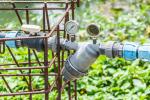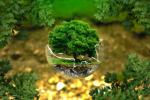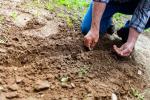Biodiversity Foundation FERTECO Project: Sustainable Fertirrigation in the Mar Menor watershed
- Type Project
- Execution 2024
- Scope Europeo
- Main source of financing Biodiversity Foundation
- Project website Web del Proyecto
The project aims to develop a fertigation protocol using natural, plant-based biofertilizers with a high organic matter content to reduce nitrogen input from mineral fertilizers and test it on more than 450 hectares of horticultural and woody crop plots representative of the Mar Menor watershed.
The developed protocol and the best agricultural and environmental practices achieved will be transferred to transform the agricultural sector toward a new model that prevents groundwater contamination and improves biodiversity.
- Establishment of fertilization treatments on representative plots that promote the circular economy: byproducts from the treatment of non-marketed fresh vegetables, preventing their conversion into plant waste; whey derivatives; and natural biosolutions.
- Evaluation of different treatments to improve the quality of water used in experimental farms.
- Programming eco-sustainable precision fertigation.
- Evaluation of the effects of different fertilization and water quality treatments on the evolution of the plant's water and nutritional status, vegetative and reproductive growth, yield, and fruit quality.
- Improving biodiversity through insectivorous birds, raptors, bats, and invertebrates.
- Study on the bioeconomy derived from the fertilization and irrigation water treatments carried out.
- Design of different good management practice guides.
- Days of transfer and dissemination of results.
The main objective is to develop a fertigation protocol for representative horticultural and woody crop plots covering a total of 478 hectares, thereby reducing the use of nitrogen fertilizers and the water footprint of the most widely cultivated crops in the Mar Menor watershed.
Fertilization treatments will be tested using natural biofertilizers of plant origin from non-commercialized plant products, dairy derivatives from the cheese industry surplus, and biostimulants and biofertilizers with a high content of organic matter and microorganisms that enhance nutrient absorption.
Its specific goals include: Improving water and nitrogen use efficiency, soil quality, and biodiversity by using new, eco-sustainable fertigation treatments for horticultural and woody crops in the Mar Menor watershed.
Determine general and specific strategies for managing representative crops in the Mar Menor watershed to ensure the environmental sustainability of irrigation.
To this end, fertilization and water treatment protocols will be established, while ensuring the transfer of knowledge to farmers through direct on-farm interventions and outreach and advisory services.
- Centro de Edafología y Biología aplicada del Segura
- Consejo Superior de Investigaciones Científicas (CEBAS-CSIC)
- Coordinadora de Organizaciones de Agricultores Ganaderos - Iniciativa Rural de Murcia (COAG-IR Murcia)
- Instituto Murciano de Investigación y Desarrollo Agrario y Medioambiental (IMIDA)
- Colegio Oficial de Ingenieros Agrónomos de la Región de Murcia (COIARM)







